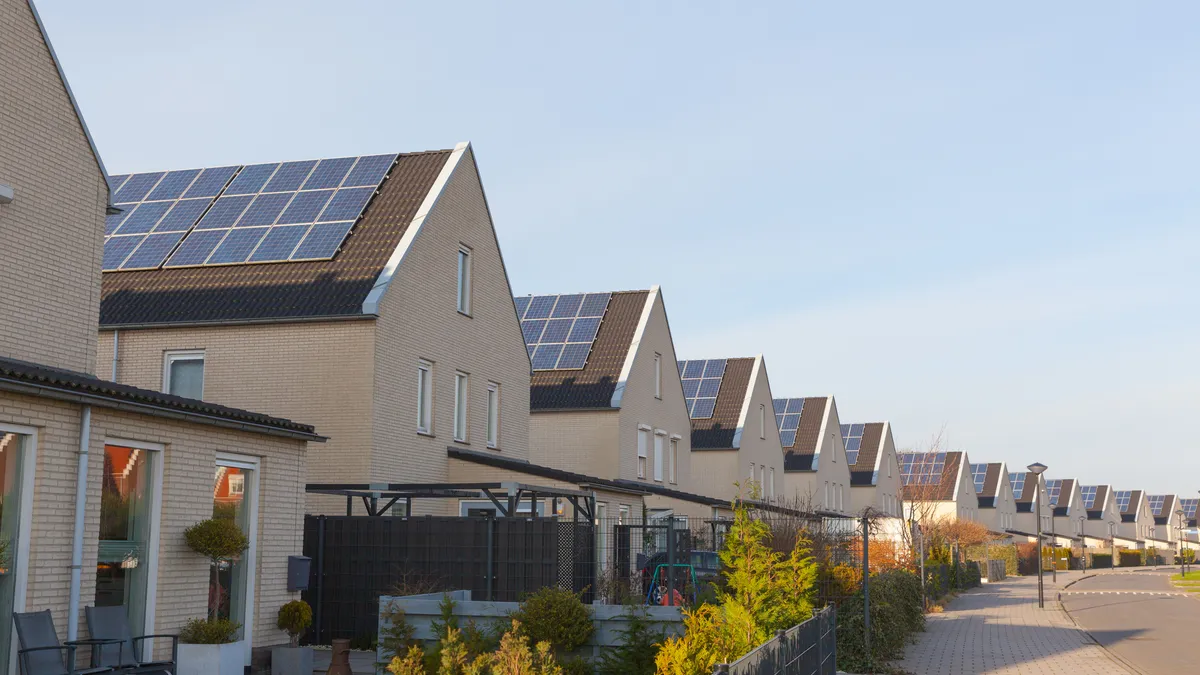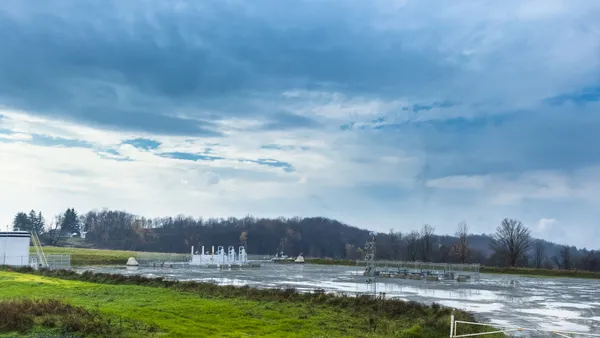The following is a contributed article by Jim Matheson, CEO of the National Rural Electric Cooperative Association.
The Federal Energy Regulatory Commission may be poised to upset a long-standing balance among local, state and federal decision-making as it considers aggregating distributed energy resources in a way that eliminates local jurisdiction. This outcome would represent a short-sighted and severe overreach by the commission.
The commission has issued a final rule requiring regional transmission organizations (RTOs) and independent system operators (ISOs) to enable storage resources, including those connected to distribution systems or behind the meter, to participate in the wholesale market. FERC has also proposed the same approach for all aggregated distributed energy resources (DER), including distributed generation and electric vehicles.
But, the commission's storage rule and DER aggregation proposal omit important language adopted by FERC in an earlier rulemaking to allow demand response aggregations only with the authorization of the relevant electric retail regulatory authority, typically a co-op board or state regulator.
While electric cooperatives generally believe RTO and ISO market rules should support evolving technologies, we are alarmed that FERC may disregard the important role played by state and local authorities over DER deployment.
The Federal Power Act wisely preserves state and local regulatory authority over retail electricity sales and local distribution service. State and local authorities, including co-ops boards, establish DER-related policies to achieve greater efficiencies and enhance service to consumers.
The absence of that language in the DER proposal gives FERC the last word over how distributed resources are integrated into wholesale markets. It also hands FERC the final say in the regulation of significant aspects of retail electric service, distribution service, and efforts by co-ops and other local utilities to plan and operate their systems for the benefit of all consumers.
Bypassing this important element of local control could have serious and harmful consequences for co-ops and their members, including:
-
system disruptions, including overloading distribution lines that were not designed with DER aggregation in mind;
-
fluctuations in voltage and reduced service quality to consumers;
-
increased costs for co-ops and their members if distribution systems require adaptations to accommodate DER aggregation; and
-
implementing a mandatory two-way communications backbone needed to maximize DER, which not all utilities or co-ops may have.
Today, local or state entities coordinate the integration of distributed and behind-the-meter resources within the grid to accomplish a wide range of state and local objectives. These include encouraging efficiency, promoting new technology, protecting power quality, and fairly allocating the costs of integration for both DER owners and other consumers on the system. Every state does this differently depending on unique local objectives and circumstances.
In contrast, if FERC regulations determine which entities can aggregate DER and which DER can participate in the wholesale markets, state and local authorities will lose control over a key element of system optimization for the benefit of all consumers.
This is a slippery slope and one deserving of checks and balances.
Once the distributed and behind-the-meter resources on a local utility participate in the wholesale market, FERC could also regulate the interconnection of additional resources to the distribution system and much of the distribution system itself.
Wholesale markets should not impose barriers to the participation of distributed and behind-the-meter resources. But those resources should not be allowed to participate in wholesale markets when it undermines state and local efforts to optimize the operation of the system for the benefit of all consumers.
FERC should respect our nation's long-standing balance of multi-jurisdictional authority and work to ensure regulatory harmony. The commission should add a simple clause to the storage rule and DER proposal recognizing local and state authority over how storage and other energy resources are integrated into the electric system.













